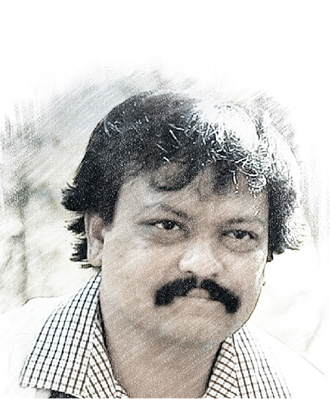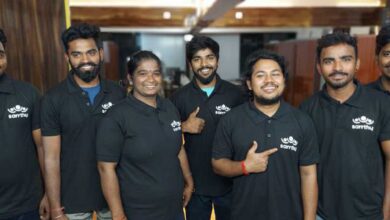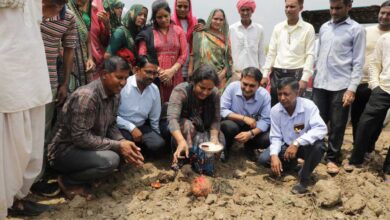Medical Care with A Purpose: Dr. Abhijeet Sonwane for Beggar Rehabilitation
In conversation with Tejas Gujarathi

There are several misconceptions about beggars. What is the truth behind those who beg? The truth is often obscured and needs to be brought to light. So, how did you uncover this truth?

I come from Mhaswad, a village in Satara district, with a humble background. In my early days as a doctor, lacking the resources to build a hospital, I would travel to villages to practice. People affectionately called me “Doctor” despite my simple attire.
During one such visit, I met a beggar, a cultured man who had fallen on hard times due to illness. I treated him, and he insisted on paying me with the money he had collected from begging, valuing my efforts. This encounter had a profound impact on me. He imparted valuable insights into healing, emphasising the importance of empathy and sympathy in addition to medical treatment. He likened human life to a book with three pages: birth, death, and the one in between, symbolising our life’s journey. Some are preoccupied with their well-being, while others stay awake, thinking of others; from self-awareness to awareness of others being the essence of life.
Inspired by this, I left my job on August 15, 2015, and have since dedicated myself to helping beggars and those in need. I provide medical assistance, financial aid, and essential support. This encounter taught me the true meaning of being a healer and the significance of caring for the less fortunate. It ignited a passion to serve others with compassion, spreading the message of empathy and kindness in our society.
Doctor, what help do you offer to those in need? How do you select them, find them, and help them—medical check-ups or more?
I believe in treating all devotees and beggars alike. I visit temples daily, sitting among them, sharing their joys. I have a family of 1100 people now. I offer medical services on the streets and hospitalize patients for complex procedures. We have numerous projects to provide essential medical care and education to their children. During the pandemic, my beggars donated blood, saving 157 lives. I also encourage yoga to strengthen their lungs. In Pune, no beggar died due to a lack of medical care.
I have heard that you help with cataracts and other major operations and help them start a business. Through which organization do you get the funding?
My primary focus is on helping the elderly. I conduct eye examinations and provide glasses to those in need, including those recovering from cataract surgery. So far, we have performed 1200 cataract surgeries and given glasses to 1500–2000 people. My mission is to transform beggars into hard workers. Funding is managed through the registered Soham Trust. People want assurance that their donations reach the right recipients and support the transition from begging to employment. This approach has led to 105 people abandoning begging and becoming productive members of society.

My primary focus is on helping the elderly. I conduct eye examinations and provide glasses to those in need, including those recovering from cataract surgery. So far, we have performed 1200 cataract surgeries and given glasses to 1500–2000 people.
Do the people you assist readily accept job opportunities and work when you help them find employment, as you mentioned earlier?
People’s acceptance of working is still limited, but we try to instil self-reliance in them. We encourage them to start their own businesses, like selling vegetables or harvesting crops. We provide scales and boards for them to work independently. Many are educated but jobless, so we offer jobs, and they sit in busy areas, like gardens or Lakshmi Road, to earn with dignity. People try the weighing scale, paying Rs 5, which boosts their self-respect. We empower them to be self-sufficient, not dependent on me or others. Through these efforts, we help them start their own businesses and become self- reliant individuals.
Could you share some memorable moments of helping them?
Every day, I experience numerous heartwarming moments with these kind people. Elderly grandmothers lovingly wipe my sweat, shield me from the rain, and even store cold water for me. It feels like I am in a kingdom, despite being a beggar’s doctor. One remarkable incident was helping a girl who had a baby find love and get married. She named her child Abhijit, but when I asked, she admitted she would have named him Manisha. Their love and affection hold immeasurable value to me, surpassing the need for any medal or recognition. These moments remind me of the profound impact we can have on each other’s lives through compassion and care.
What message do you have for society?
My message to society is to stop encouraging begging and instead offer genuine help and support. Empower people to be self-reliant by teaching them skills and providing opportunities for work, rather than perpetuating dependency.





